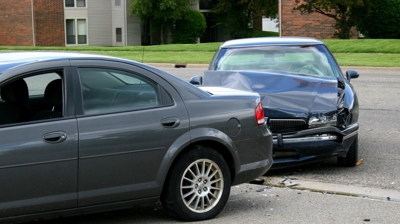
Takata Airbag Recall
Over the years, our vehicles have become significantly safer. One of the key reasons for that is because a lot of equipment has been added to our cars to make it more likely that we will survive in a crash. One of the most important pieces of safety equipment added to our vehicles has been the airbag. The airbags featured on virtually every passenger vehicle in the country are designed to offer protection to vehicle passengers if the car is involved in an accident. If the vehicle collides with another object, whether another vehicle, a pole or a guardrail, sensors in the car activate a very powerful inflator, which is supposed to fill a very large bag with air, thus providing a cushion that lessens the impact on passengers. That should reduce their risk of injury or death.
Unfortunately, while airbags in a vehicle are supposed to prevent death, it has been discovered that some airbags may actually be causing vehicle passengers to become injured and increasing the possibility of a fatality. The airbag systems that are creating the most concern are those manufactured by Takata Corporation. Unfortunately, the use of these airbag systems isn’t limited to one specific model or type of vehicle. There is an active recall underway for vehicles that have been fitted with Takata airbags and it covers nearly 50 million vehicles in the United States, nearly 100 million worldwide and affects nearly 200 different vehicle models made by 17 different auto makers, including the largest in the world.
This is a very serious problem that all vehicle owners should take seriously and investigate. The Tampa Personal Injury Attorneys at Kemp Law Law Group want you to understand what is happening with these airbags and how it may affect you.
Instead of mitigating injuries and saving lives, some vehicle passengers are being seriously injured or killed when Takata airbags deploy. The heart of the problem is in the airbag inflators, which deploy with enough force that they shoot metal shrapnel into the vehicle’s cabin. This problem has been present for a while and, according to some, it may have its origins in 2001. That is when Takata decided to replace the propellant gas they had been using, a synthetic compound called atetrazole, because it was too expensive, with the much cheaper compound ammonium nitrate.
Ammonium nitrate is a fertilizer that is also commonly known as an explosive. Researchers who looked into the problem discovered that, without including a drying agent in the mixture, the volatile ammonium nitrate can actually create a chemical reaction with the metal that makes up the inflator’s housing. Much like oxidization or rust, the reaction weakens the metal structure of the inflator, causing it to break apart and send shrapnel into the vehicle’s cabin. This is especially the case in warm, humid climates, according to researchers.
The very first documented case in which a Takata airbag inflator exploded and shot shrapnel into a vehicle happened in 2004 and it killed its victim. It took a while, however, for the National Highway Traffic Safety Administration (NHTSA) to note the problem and encourage the company to begin issuing recalls. The first recall was issued in 2008, but they have steadily expanded, especially in the last few years. The first recalls were limited to areas with hot, humid climates, like the Florida Gulf Coast, but it has been expanded to include vehicles in most areas, based on the realization that people drive a lot and experience hot, humid weather at one time or another. According to the NHTSA, there have been at least 14 deaths and more than 100 serious injuries reported that have been linked to exploding Takata airbags.
One reason the scope has expanded is because of pressure brought to bear on the company and the NHTSA based on the weather angle. A number of consumer advocacy groups and even Congress criticized this approach because they felt it not only discouraged vehicle owners from getting the necessary repairs if they just happened to live just outside a few specific regions. Too many people erroneously believed their vehicle’s airbags were safe and it wasn’t until serious injuries or deaths linked to exploding Takata airbags occurred in areas like Oklahoma, California and Virginia, which were outside the designated regions, that the recall began to expand to everyone with a Takata airbag system.
If the research is to be believed, our area of Florida is a major focus of the Takata airbag recalls, so everyone who is driving a car equipped with one of these airbags should understand that their airbag may not protect them in an accident. It may, in fact, hurt or even kill them or someone in their family.
The Takata Corp. hasn’t always been forthcoming with information throughout this long ordeal. For example, until last year, the company claimed that the defective airbags were only installed in the front seats on older models, when it was subsequently discovered that they had been installed in other parts of the vehicles as well. According to reports, company technicians claim they were ordered by senior officials to destroy test results that showed cracks in airbag inflators as early as 2004.
It will not be easy for the company to complete its task of replacing all of these defective airbag systems before the NHTSA-imposed deadline of 2019. It has been enormously difficult for the company to come up with new replacement systems for the vehicles subject to recall and other airbag manufacturers have been working overtime to help. Because there have been at least 14 deaths and well over 100 injuries linked to Takata airbags, the Personal Injury Attorneys at Kemp Law Law Group urge everyone who receives a recall notice to take care of the problem and have it repaired as soon as possible. The NHTSA agrees, telling owners to get their recalls fixed as soon as possible because doing so is “essential to personal safety.”
Again, environmental moisture, high temperatures, and age have been strongly associated with the Takata airbag defect and those factors can result in improper inflation of the airbags. That makes the Gulf Coast of Florida a priority region for replacing these defective airbag systems, which means it is more important here than in many other parts of the country. Even if you have not received a recall notice about this defect, you can find out if your vehicle is subject to any recall, including one for Takata airbags, by inputting your VIN into the NHTSA’s Safer Car Vehicle-Identification-Number-lookup tool. Once you find out that you may have a defective airbag, contact a dealer and see what you can do next.
If you or someone you love has been seriously injured or even killed by a defective airbag, you will need an experienced personal injury attorney, like the Defective Vehicle Attorneys at Kemp Law Law Group on your side. We can help you get through your ordeal in a way that protects your rights and helps you recover for your injuries. Victims of a manufacturer’s negligence need a knowledgeable and experienced personal injury attorney on their side to make them whole again. Contact us today for a free consultation.






